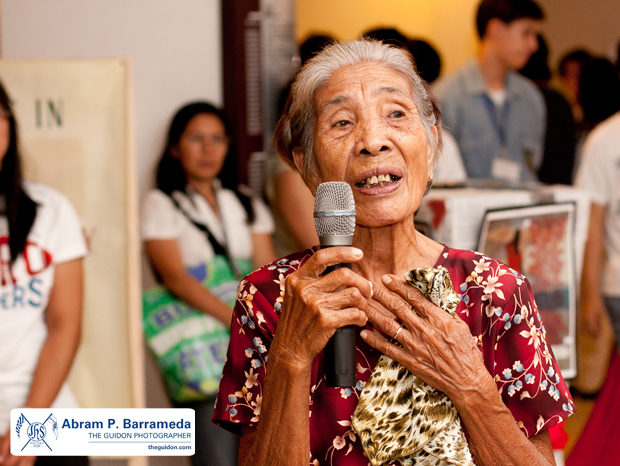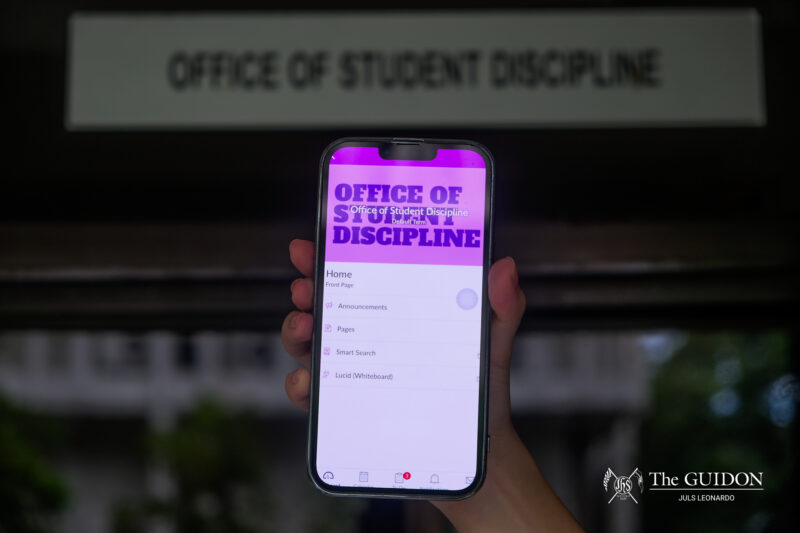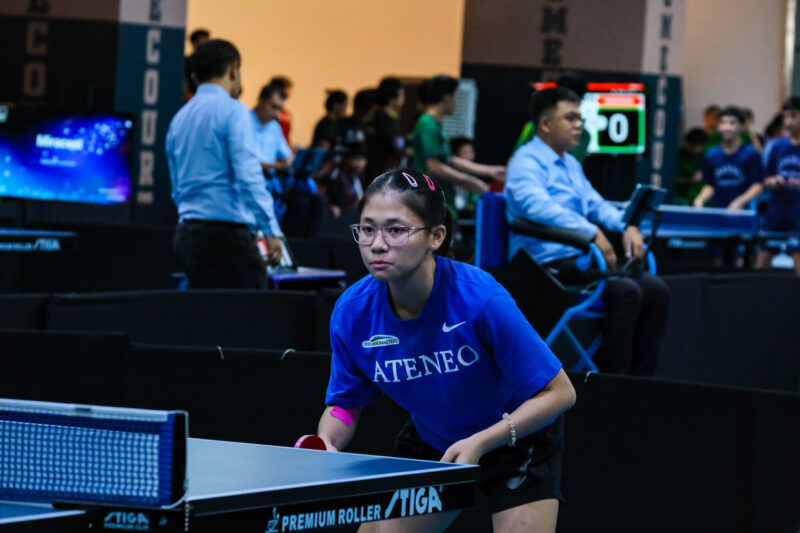IN ORDER to present the plight of the Casiguran folk due to the recent Aurora Pacific Economic Zone (Apeco) issue, the Ateneo Task Force Anti-Apeco (ATFAA) held “Kasiguruhan, Aurora, An Exhibit of the Anti-Apeco Struggle.”
The launching of the exhibit was held on December 4 at the MVP Basement. The exhibit will run until December 6.
Through pictures, the exhibit aimed to show how Casiguran farmers, fishermen and indigenous peoples (IPs) value their land because of the security it gives, in contrast to the assurances of Apeco.
There is also a board wherein Ateneans can post complaints about the Apeco and messages to the Casiguran folk.
Casiguran folk Adarlina Constantino, 76, and Theology instructor Michael Liberatore also gave speeches during the event.
Liberatore challenged the audience to be more critical about the situation in Casiguran, asking them, “How is this our problem?”
“The source of our capacity to be critical is not our own mind, but precisely the stories, the experiences [and] the history of individuals of Casiguran—what they created for themselves, what their dreams [are], what they are hoping for their future.”
Apeco is a special economic zone being constructed in Casiguran, Aurora. As a result, 124 farmers, fisherfolk, and Agtas of Casiguran have been marching to Manila since November 24, hoping to urge President Benigno Aquino III to impose a moratorium on it.
As of press time, they are in Cabanatuan City, approximately 150 kilometers away from the Ateneo campus.
‘Apeco, aping-api kami’
During her speech, Constantino lamented the negative impact of Apeco. “Apeco, aping-api kami [oppresses us].”
“No to Apeco! Sana ‘wag na pondohan ang Apeco kasi ‘pag binigyan pa ng pondo ang Apeco, wala namang mangyayari (I wish that there would be no funds allotted to Apeco because even if they are given money, nothing will happen),” she said.
ATFAA Head Tricia Raya said in Filipino, “Almost two billion has been donated by the government for this project but there’s nothing returned to us yet.”
‘Commitment’ for Casiguran
Liberatore talked about how the Ateneo community can learn more about society and solidarity through the Casiguran folk.
“One of the things that was interesting when I was in Casiguran a couple of years ago is when you listen to their stories, we also see Philippine society. We also see what our economic, social and political structures really do,” he said.
Liberatore stressed that learning about a society cannot be done through books and theory alone.
In addition, he said that this learning comes from people whose background is different from that of Ateneans’.
“It is in learning that we come to realize what it is to be human, to be Filipino,” he added.
“The more we interact from the marginalized group, we learn from that commitment, that dedication to say, ‘This is absolutely [and] essentially important, so much so we will stop everything in our lives and march because our lives are at stake,’” he said.
He added that once such a commitment is achieved, one will realize what it means to be dedicated and to fight for justice.
Liberatore concluded in his talk, “Everyone has the right to be heard, to dream and to hope.”







